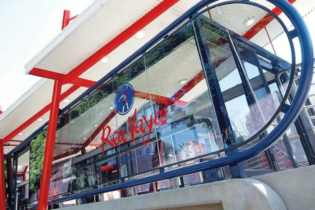The Japanese fishing vessel, the Eihatsu Maru, which ran aground at Clifton’s First Beach during heavy fog on Saturday, has become an issue of national importance. So says South Africa’s Maritime Safety Authority (SAMSA) after the second attempt to dislodge the vessel on Tuesday failed.
Given the environmental sensitivity of the area, the salvage operation was being cautiously approached. However, because the vessel is not on the rocks, there is currently a low risk of any oil pollution. The initial decision not to remove any of the 90 tons of fuel and 40 tons of tuna on board has been reversed. Approximately 80 tons of fuel will be removed to lighten the ship before another attempt is made to tow the ship off the beach.For the time being, none off the 40 tons of tuna, packed in ice in the ships holds will be removed.
Dave Colly, Samsa’s regional manager, said that the salvage mission was now a national priority. The window of opportunity to get the ship off the beach is fast running out. “We can’t quibble about costs and logistics any more. It just needs to get done,” he said. But, questions remain. Why did the ship run aground? Was it negligence on the part of the ship’s crew? Was the ships radar system functioning properly as is required by maritime law?






